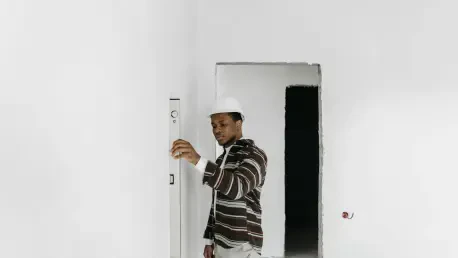With the housing sector poised for transformation, landlords face fresh challenges as the Decent Homes 2 standards come into play. This initiative aims to elevate living conditions by aligning housing quality with modern standards of safety and comfort. The following analysis delves into the preparedness of landlords in meeting these new requirements and navigates through their strategic investments and adjustments amid changing regulations.
Transitioning to Enhanced Housing Quality
The introduction of Decent Homes 2 marks a new phase in housing policies, seeking to address persistent disrepair issues and mandating routine maintenance of vital facilities. By redefining what constitutes disrepair and upgrading essential components such as kitchens and heating systems, the initiative promises to significantly improve living conditions. It also emphasizes enhanced safety measures like window restrictors and better thermal comfort. Landlords, on the brink of these regulatory changes, must assess their current infrastructure to align with forthcoming expectations.
Financial and Operational Strategies of Landlords
Investment Efforts and Strategic Upgrades
Landlords are significantly increasing their investment in anticipation of the Decent Homes 2 standards, with reports indicating a 26% rise in spending on housing improvements. This financial commitment encompasses upgrading key areas, including kitchens, bathrooms, and insulation. By utilizing procurement frameworks such as those offered by Procure Plus, these enhancements are achieved at competitive rates, enabling reinvestment into further property advancements. Despite financial burdens, tailoring improvement strategies has become a focus for many landlords.
Tackling Maintenance Obligation
Addressing maintenance issues like mold and dampness has become critical, as these factors directly affect tenant well-being and property integrity. Enhanced ventilation systems and detailed property surveys are in place to tackle these concerns effectively, aiming to preemptively manage potential disruptions. The concerted effort to refurbish properties not only mitigates previous risk factors but also prepares for long-term sustainability. By prioritizing maintenance, landlords are taking proactive steps to align with evolving tenant expectations and regulatory standards.
Regional Adaptations and Market Dynamics
Landlords face varied challenges across different regions due to discrepancies in local laws and environmental factors. Understanding regional specificities is essential, as climate conditions and differing regulatory landscapes influence how standards are implemented. Innovative solutions, such as adopting green technologies and leveraging local resources, can provide a tailored approach. By recognizing the importance of contextual strategies, landlords can enhance compliance while gaining a competitive advantage in the market.
Embracing Future Trends and Technologies
The housing market is witnessing significant transformations through digital advancements and sustainable practices. With emerging technologies in property management and the growing emphasis on green construction, landlords are navigating a landscape defined by rapid change. The economic shifts, influenced by lending market dynamics and investment strategies, further shape landlord readiness. This evolving environment suggests that housing quality will increasingly integrate sustainable and tech-driven solutions.
Practical Actions for Standard Compliance
Meeting Decent Homes 2 standards requires a detailed and strategic approach. Landlords are encouraged to undertake comprehensive property assessments to identify key areas for improvement. By investing in advanced technology and employing property management software, operations can be streamlined, boosting both compliance and tenant satisfaction. Collaborations with local SMEs not only foster economic growth but also enhance service quality, creating a mutually beneficial ecosystem that promotes better housing conditions.
Strategic Reflections for Landlords
As the Decent Homes 2 standards become a reality, landlords must reflect on their strategies for compliance and improvement. The focus on adaptive solutions, integrating technological advancements and regional considerations, suggests potential areas for growth and community well-being. By embracing this regulatory shift as more than just a compliance requirement, landlords can take a leadership role in creating health-conscious and sustainable living environments. Through clear commitment and strategic foresight, the opportunity to shape the future of housing quality lies within reach.









